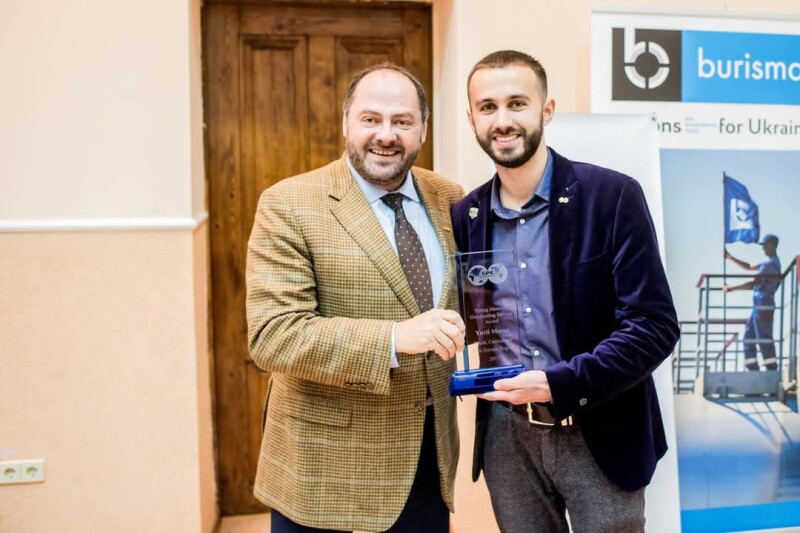Yurii Moroz is a new energies manager for UkrGasVydobuvannya (UGV). In this role, he and his team are responsible for the development of projects including natural hydrogen exploration, geothermal energy harvesting, and carbon capture and storage (CCS).
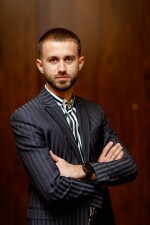
An SPE member since 2011, Moroz held several positions during his time with SPE Ivano-Frankivsk National Technical University of Oil and Gas Student Chapter, SPE Central Ukraine Section, and the SPE Hydrogen Technical Section. He currently serves as chairperson of the SPE Central Ukraine Section and chairperson-elect for the SPE Hydrogen Technical Section.
TWA spoke with Moroz about his career evolution, SPE participation, and his advice for future engineers.
“My career has been shaped by transferable skills—adaptability, resilience, and integrity—that took me from field operations in oil and gas to leading innovation direction at DTEK O&G and now managing new energies projects at UGV. In my opinion, Ukraine can become a testbed for energy transition projects implementation, with unique potential in CCS, geothermal, CRM extraction, and hydrogen production. As SPE Central Ukraine Chair and chairperson-elect of the SPE Hydrogen Technical Section, my mission is to bridge global innovation with Ukrainian companies and empower young engineers to drive sustainable change,” said Moroz.
TWA: You’ve built an impressive career in both oil and gas, innovation, and new energy sectors at just 32 years old. What first drew you to petroleum engineering, and how has your career evolved into your current role as new energies manager at UGV?
YM: At 32, I would describe my career as solid, though not yet impressive. I still have much to achieve. What truly drives me today is the development of innovations and new energies—areas that Ukraine urgently needs and where I see the greatest potential. My career path has been built on transferable skills: the ability to adapt, to learn quickly, and to connect people and technologies. These skills are the foundation for both my professional growth and Ukraine’s role as a proving ground for energy transition technologies.
From Fieldwork to Leadership
Oil and gas has always been my core. I began my career at DTEK O&G as a gas production operator. My first 2 weeks were spent painting pipes and cutting grass. At that time, I asked myself: why should a former student chapter president with good English do such work? But those experiences taught me resilience. Soon, I was studying the facility in detail and touring production wells daily. Understanding every piece of equipment, document, and procedure was essential because sometimes you stay overnight in the field and must make decisions on your own.
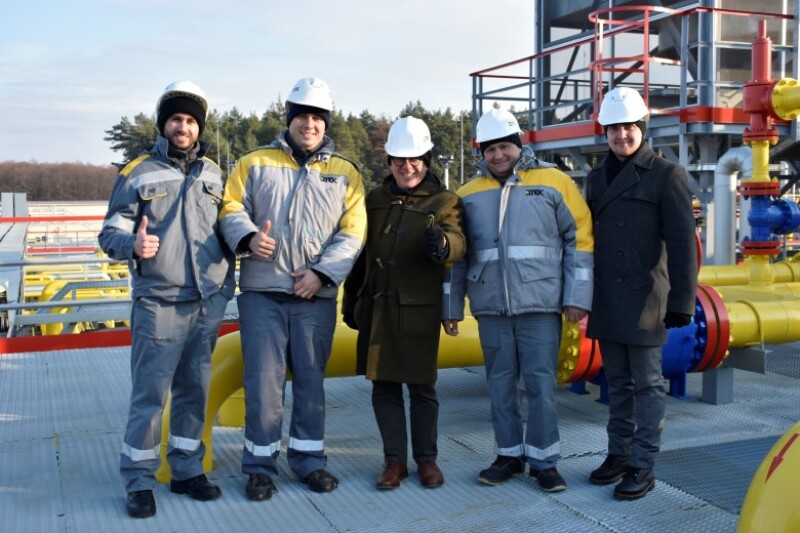
A year later, I was managing shifts at another production facility, answering technological questions, issuing permits for hazardous work, and ensuring that processes were simple enough for anyone to follow safely. Field life gave me a foundation: a deep understanding of oil and gas processes, respect for every colleague, from director to worker, and the unwritten rules of teamwork: what happens in the field, stays in the field.
After 2 years, I took a 30-day vacation to Canada, visiting Calgary, the Global Petroleum Show, SPE Calgary events, and SPE’s Calgary headquarters. Upon returning to Ukraine, I was offered a lead engineer role at DTEK’s Central Engineering Technology Service. Based in Poltava, I oversaw well workovers, drilling rigs, and gas processing facilities, sometimes reporting directly to the CEO. In this position, I learned that success depends on truly understanding field operations, knowing the current states and further steps that need to be taken before you can even enjoy your coffee.
Later, I was fully involved in DTEK Oil and Gas' Technology Center establishment, we were sourcing and implementing advanced technologies. Together with the workover department we introduced snubbing technology to replace tubing without stopping production and launched an expert council of subject matter experts to solve challenges rapidly. The key lesson was time management: intelligently estimating implementation timelines and adapting to management pressures without losing focus.
Driving New Energies at UGV
For the past 4 years, I have worked with UGV, Ukraine’s largest state-owned gas company, primarily on new energy projects. Transitioning from a private to a state company required new approaches and qualities, but it also gave me the opportunity to focus on the future: hydrogen, CRM, geothermal, and CCS.
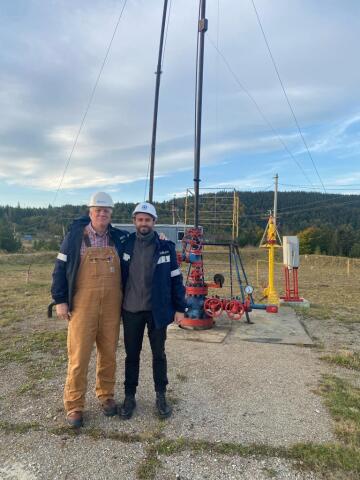
In Ukraine, we are carefully collecting data and mapping hydrogen anomalies but remain cautious, as only Hydroma has demonstrated commercial natural hydrogen production so far. Some preliminary calculations have also been made regarding the feasibility of critical raw materials (CRM) extraction.
CCS, however, is where Ukraine could make the greatest impact. Ukraine posesses the largest natural gas storage capacity in Europe, with over 31 Bcm in underground storage facilities owned by the state-run company Naftogaz. This position can make us the leading CCS country in Europe, provided we are technically, economically, and regulatorily prepared.
In my opinion, the most mature and affordable technology is geothermal energy. With the highest geothermal gradients in the Pannonian Basin and many unproductive wells available for repurposing, Ukraine has the potential to deliver scalable geothermal solutions. Supported by EU and UK grants, we are already conducting pre-feasibility studies with international partners, but further regulatory action is also needed here.
TWA: Beyond technical expertise, what soft skills have been most important to your success in your career?
YM: My former CEO once said: “If someone is a good human, they can become an expert soon. The reverse doesn’t always work.” This wisdom guided me to stay a human in most challenging situations.
Technical expertise matters, but transferable skills became a real foundation for me.
Integrity and reliability: My word must mean something. If I commit, I deliver, regardless of personal benefit. My reputation is my wealth.
Empathy and respect: Oil and gas is a small world. Reputations are built on how you treat people at every level. Today you manage him, tomorrow he manages you.
Adaptability and problem-solving: From field shifts to international projects, success requires learning fast and adjusting quickly.
In the energy transition, these human values are as critical as technical skills.
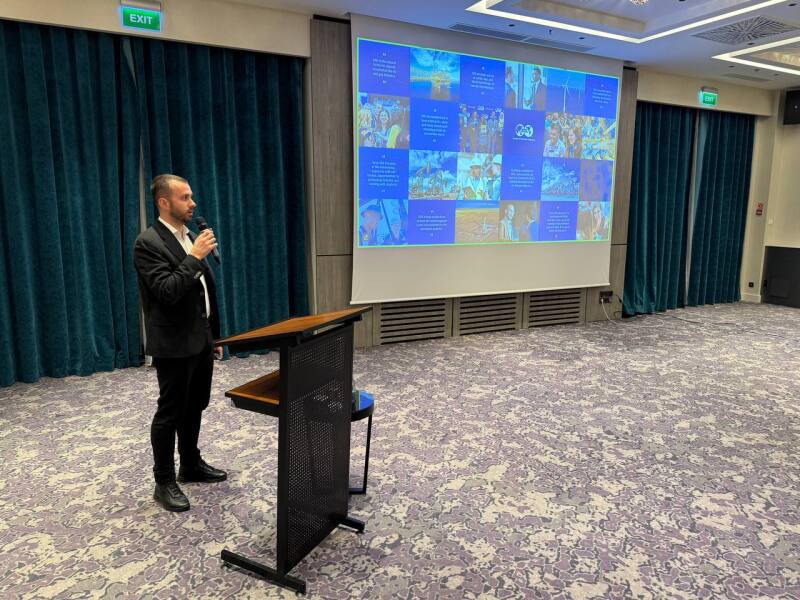
TWA: You’ve served 13 years in leadership roles within SPE, beginning with president of the Ivano-Frankivsk National Technical University of Oil and Gas Student Chapter and now as SPE Ukraine Section Chair. What advice would you give young professionals on making the most of their SPE membership, and what’s the most effective way to attract and retain young talent in oil and gas during uncertain times?
YM: I was born in a small village in western Ukraine. I was not the best schoolboy, but I excelled in chemistry competitions. My parents, both teachers, dreamed of raising an “oil king,” so I chose oil and gas as my field.
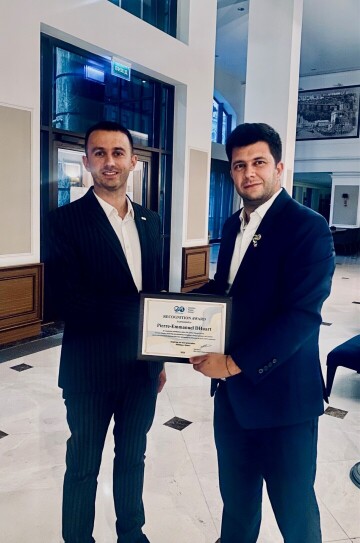
At Ivano-Frankivsk National Technical University of Oil and Gas, I realized the importance of English and took daily courses to master it. Joining SPE was a turning point. Within a year, I became student chapter president, participating in both local and international events. SPE gave me tools, partners, and opportunities that shaped my life. One lesson is clear: English is not an advantage; it is a necessity.
SPE membership is a personal tool. For some, it means finding a job. For others, it means finding employees. For me, it became a global network for knowledge and innovation. My advice to young professionals: know what you want, then use SPE as your platform to achieve it.
TWA: Can you share a specific example of an SPE Ukraine initiative or event that you are particularly proud of?
YM: One of my proudest achievements as SPE Ukraine Section Chair was merging the Ivano-Frankivsk and Kyiv sections into SPE Central Ukraine during the full-scale Russian invasion. Instead of competing, we united.
Membership grew from 120 professionals and 350 students to nearly 400 professionals and 1,000 students. Companies now reimburse membership fees, and more importantly, we have delivered real value: solving technological challenges by posting them on SPE Connect, sourcing international solutions, and connecting members with neighboring sections.
This is what makes SPE invaluable: a source of knowledge, collaboration, and trust.
TWA: As chairperson-elect of the SPE Hydrogen Technical Section, what hydrogen-related developments are most promising for Ukraine’s future energy mix?
YM: As chairperson-elect, I am proud to contribute to shaping Ukraine’s National Hydrogen Strategy. Hydrogen will be vital for ammonia and fertilizer production, methanol, steel, oil refining, and eventually power generation. This is a 6-year leadership commitment within SPE, and I view it as building a family that grows together.
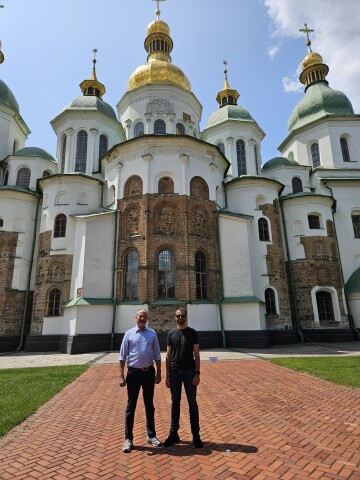
TWA: For young petroleum engineers who want to make an impact both locally and internationally, what technical skills and professional approaches will be most valuable in the next 5 to 10 years?
YM: In May 2023, I delivered a keynote during a special session at the OTC Conference in Houston: “Building Transferable Skills During the Energy Transition.” My message to young engineers was simple: oil and gas will remain the financial backbone of the energy transition, but we must learn new skills:
- Mastering data science, artificial intelligence, machine learning, and cybersecurity.
- Understanding hydrogen properties, CO2, and energy transformation processes.
- Advancing expertise in sustainable energy and reservoir management.
- Developing emotional intelligence, adaptability, and lifelong learning.
The future belongs to those who can integrate technical knowledge with human values and bridge traditional and emerging energy sectors.
Conclusion
My career has been built on transferable skills—resilience, adaptability, integrity, and respect—and on using these skills to connect people and technologies. Ukraine, with its unique resources and strategic position, can become a testbed for energy transition technologies. My mission is to serve as a bridge between international innovations and Ukrainian companies, ensuring that our industry moves forward together.

